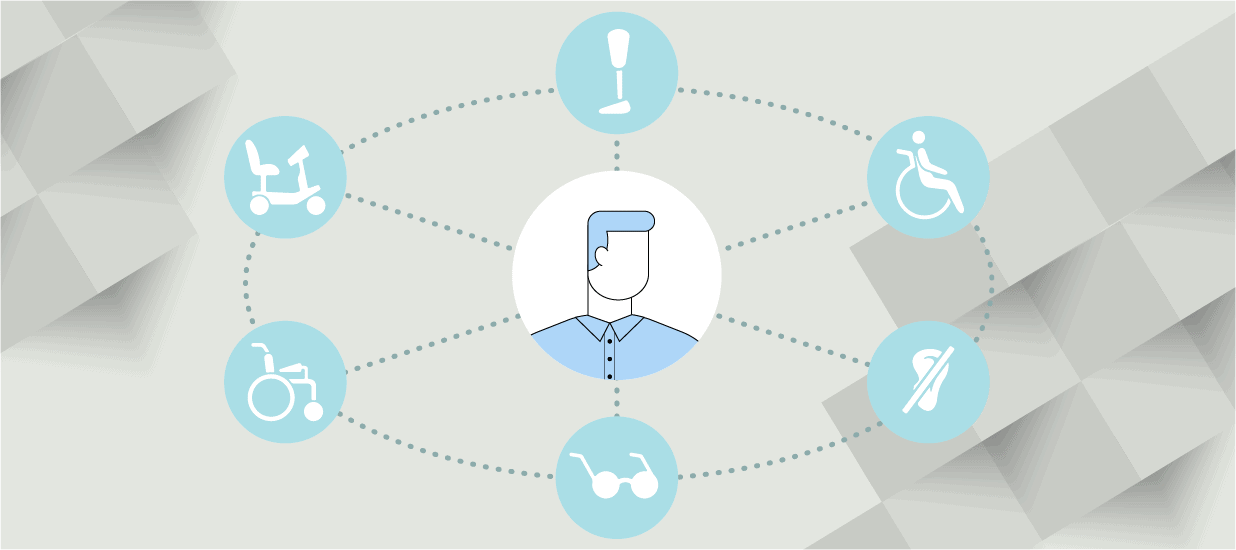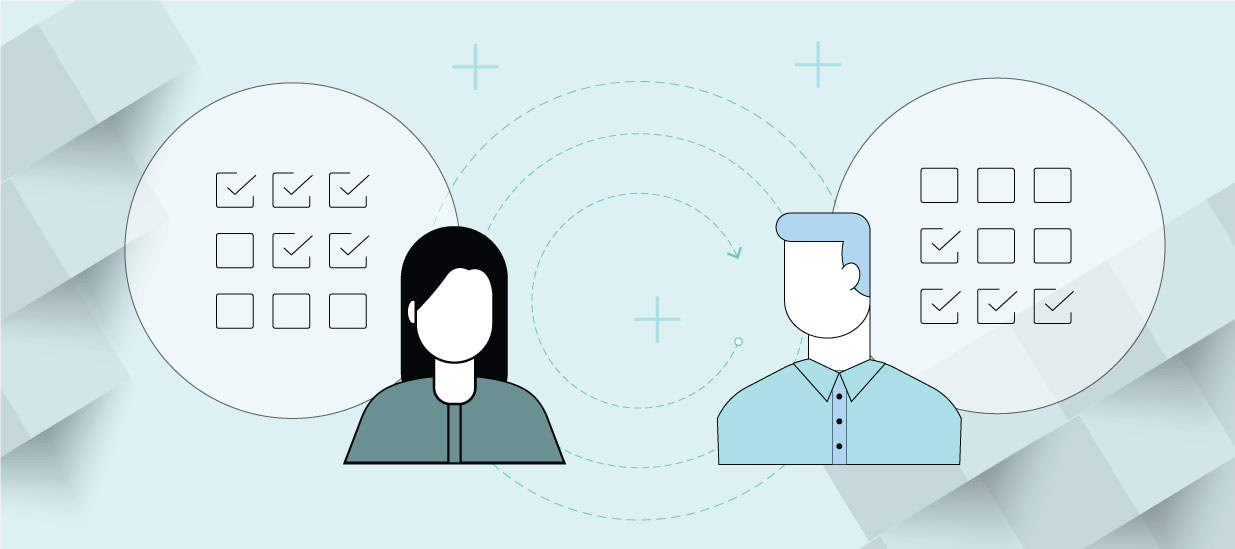Imposter syndrome is the internalized belief that your success is due to luck or other external factors rather than your skills, intelligence or qualifications. This false idea leaves you with a perpetual feeling of being a poser or under constant threat and fear of being exposed as a fraud.
You begin to have feelings of uncertainty and self-doubt, as well as a sense that you’ve tricked people into allowing you to take on this position. And you’re caught in a vicious cycle of inadequacy, guilt, and anxiety.
Experts say that anytime you’re facing a new challenge or out of your comfort zone, you’re more susceptible to imposter syndrome. Let’s look at what imposter syndrome is, signs you may have it, and how you can take control of it so it doesn’t derail your sense of accomplishment and self-worth.
Signs you have imposter syndrome
It can start with not believing you’ve earned your success by your own merits.
You may also feel like you’re not enough—not qualified enough, not smart enough. Maybe you have a different background than the other team members, and you feel paralyzed by comparisons.
You may be unable to internalize success and be proud of your intelligence, competency, and skills. And you may at times find yourself exaggerating your shortcomings and failures. And in turn, you might find yourself setting unrealistic goals and then feeling bad about yourself when you can’t achieve them.
You may avoid new opportunities and challenges for fear that you won’t be able to complete them, or you’ll be found out as a fraud. You may find yourself placing your value in the ability to do it all and do it with excellence. And this can be displayed as showing perfectionist tendencies.
You might compare other people’s results and accomplishments with your internal monologues and struggles.
While it’s okay to evaluate yourself, it becomes a problem when overwhelmed by these thoughts.
Sometimes it’s hard to feel like you’re contributing if you’re not the best. And, it isn’t easy to define what it means to be the best because we think of it as an either/or circumstance. Instead, it helps to think of people having a variety of areas where they are the expert and the other areas where they are not.
When we approach competency in this way, we see interactions with our colleagues as opportunities to learn rather than compete.
Additionally, we might not ask for help or delegate tasks because we want to seem impressive. Instead, it just destroys work-life balance.
The Pandemic’s Effect on Imposter Syndrome
The pandemic has caused an increase in feelings of imposter syndrome.
47% of workers worldwide reported feelings of imposter syndrome increasing since 2020. So feeling isolated from your team while you’re working from home is natural. Many of us were also propelled into new positions due to COVID-19.
Many of us are just wondering if we’re keeping up with the rest of our colleagues. And many people are overworking to avoid losing their jobs or doubting that they’ll be able to find another one.
Imposter Syndrome Cycle
The struggle is internal, and you might feel that no matter how hard you work, you end up in the same spot. People who are caught in the imposter syndrome cycle feel trapped and unable to go on or get unstuck. And these feelings can make it challenging to set limits and commit to healthy work-life balances, both of which are necessary for personal success.
Imposter syndrome can start with you being assigned a new project or task. Anxiety takes over, and you might either procrastinate or over-prepare to the point of stress.
You complete the project, and you get a brief sense of success, but you may rationalize that success away with, “I got lucky this time.” Then, there is a spike of self-doubt, leading to feelings of fraud. Maybe you think everyone will realize someone else will do a better job.
The cycle continues to loop over and over, and you may find yourself feeling trapped.
Well, we’re here to share tips to help you break the cycle as well. We not only want to help you understand what imposter syndrome is and how it may impact you, but we also want to help you overcome it.
We’ve found that there are six steps you can take to help reframe your thinking and combat imposter syndrome.
Step 1: Focus on the Facts
Imposter syndrome makes you believe you aren’t qualified for your position.
However, these emotions are frequently founded on fear rather than facts, and separating your feelings from the facts is the most effective strategy to combat imposter syndrome. That definitely sounds easier said than done, and you might be thinking,” how can I do that?” Well, you can start by building up your confidence by becoming more aware of your strengths.
You can conduct a personal SWOT analysis, where you analyze your strengths, weaknesses, opportunities, and threats.
Step 2: Acknowledge, Validate and Let Go
We’ve talked about focusing on the facts, but that doesn’t mean your feelings aren’t valid. Combating imposter syndrome isn’t about ignoring your emotions, rather that while feelings aren’t important, they are just feelings and don’t necessarily reflect reality.
Feeling unqualified doesn’t mean you actually are. The best method to combat this feeling is to acknowledge that you’re feeling inadequate and validate that it’s okay. And then let go of those feelings.
Step 3: Reframe Your Thoughts
There’s a lot of power in thoughts.
Our perspective on the world and of ourselves can shape our reality, both positively and negatively. Remember, imposter syndrome is the internalized feeling that you were not good enough. And if you reshape the way you think about yourself and set realistic goals, you’ll begin to see yourself as deserving of your place.
This can mean the deserving of your new role, your place on a team or praises for your accomplishments.
Step 4: Share How You’re Feeling
This is easier said than done because imposter syndrome can feel very isolating.
Reach out and talk to someone you trust and share your concerns. This can be a friend or colleague, and you may be surprised to see how many people relate to how you feel. We also recommend looking for a mentor. Find those in your field that you look up to and have an honest conversation with them about how they’ve improved their technical and soft skills and what challenges they have.
You’ll likely find that even those with lots of experience have been in your shoes and can provide you with the resources you need to improve.
Step 5: Learn From Your Peers
A common symptom of imposter syndrome is comparing yourself to your peers and thinking you’re worse at your job than they are.
The reality is no one is a master at everything, but everyone is a master of something. So when working with your peers, you can exchange knowledge while mastering new skills. Don’t fall into the habit of comparing yourself to others. Recognize the value you add while learning new things from your peers.
Rather than view each other as competition, you can work together to expand your knowledge.
Step 6: Pat Yourself on the Back Once in a While
Sometimes the best way to overcome imposter syndrome is to face it, head-on.
Celebrate your accomplishments the next time you feel good about something you’ve done. Share your achievements with your coworkers or someone you trust outside of work, such as a friend or family member.
And if you believe that your life is shaped by your actions, choices, and decisions, you can take responsibility for your achievements as well as your shortcomings. Recognize that your expertise and talent empowered you to achieve your goal or complete an important project.
Keep a record of positive feedback and praise. The next time you hear that negative inner voice, this will help you take the sting out of any criticism.
Author
-

The Pragmatic Editorial Team comprises a diverse team of writers, researchers, and subject matter experts. We are trained to share Pragmatic Institute’s insights and useful information to guide product, data, and design professionals on their career development journeys. Pragmatic Institute is the global leader in Product, Data, and Design training and certification programs for working professionals. Since 1993, we’ve issued over 250,000 product management and product marketing certifications to professionals at companies around the globe. For questions or inquiries, please contact [email protected].
View all posts








